In our coverage of last year’s National Missions Study (NMS), we asked: Where are all the young missionaries?
This year, a new missions study by Singapore Centre for Global Missions (SCGM) hopes to shed more light on the issue of an ageing missions workforce, focusing mainly on what happens before young missionaries actually get deployed.
In partnership with churches and missions agencies, it sought to answer the question: How can local churches better mobilise the next generation for long-term cross-cultural missions?
Speaking to two groups of interest, 153 Next Gen Missions Workers (79 churches) and 129 Missions Leaders (81 churches and 13 agencies/NGOs) were surveyed during March-May 2020.
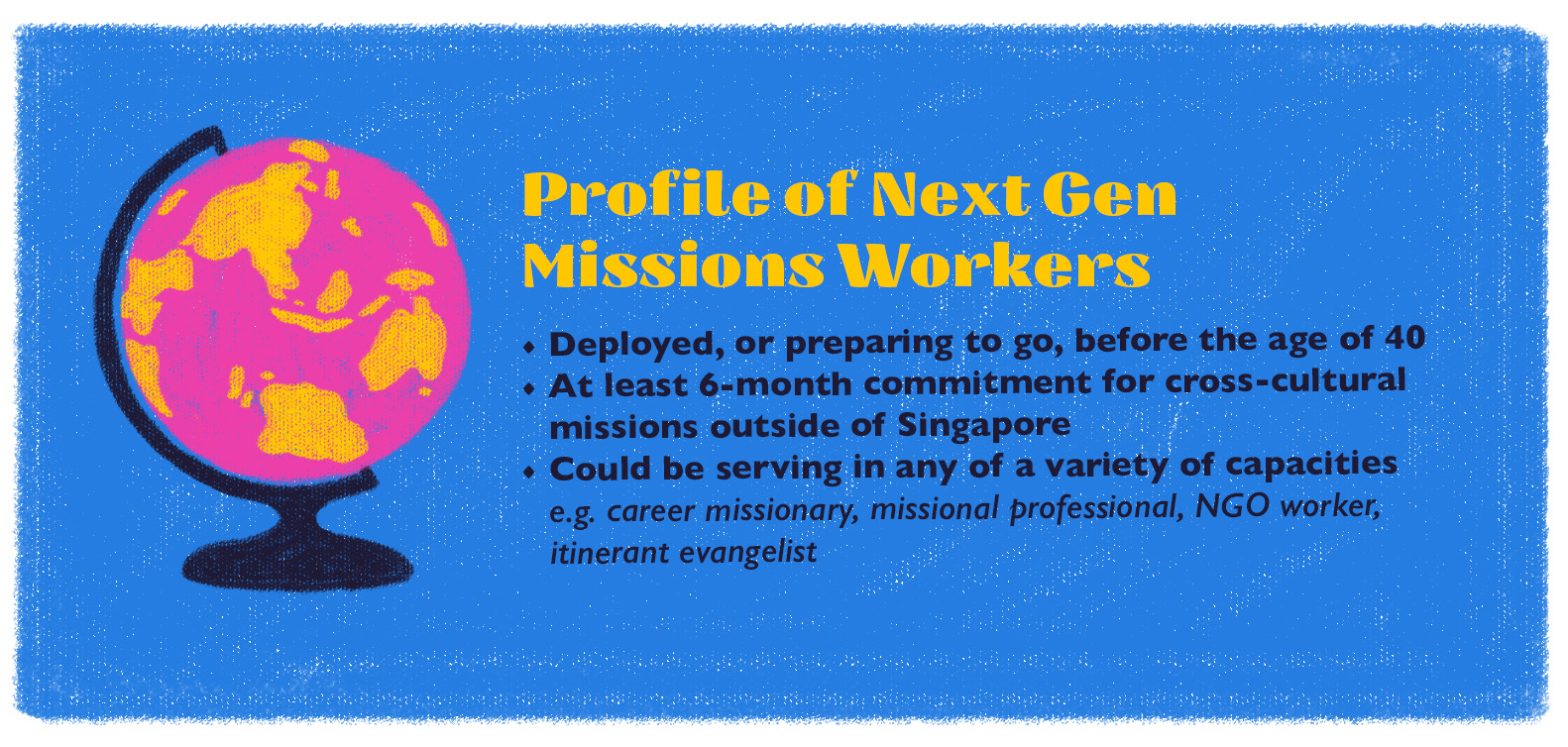 Taking a closer look at the profile of Next Gen Missions Workers, we found that around half of them are currently in the age range of 26-35.
Taking a closer look at the profile of Next Gen Missions Workers, we found that around half of them are currently in the age range of 26-35.
Two-thirds are female and one-third are male.
The most common regions that these Next Gen Missions Workers have gone to are South-east Asia, East Asia and Middle-East and North Africa in that order.
The most frequently cited professions apart from church ministry were:
- education.
- social service/counselling.
- healthcare.
- media and the arts.
In addition, the majority don’t have formal theological education.
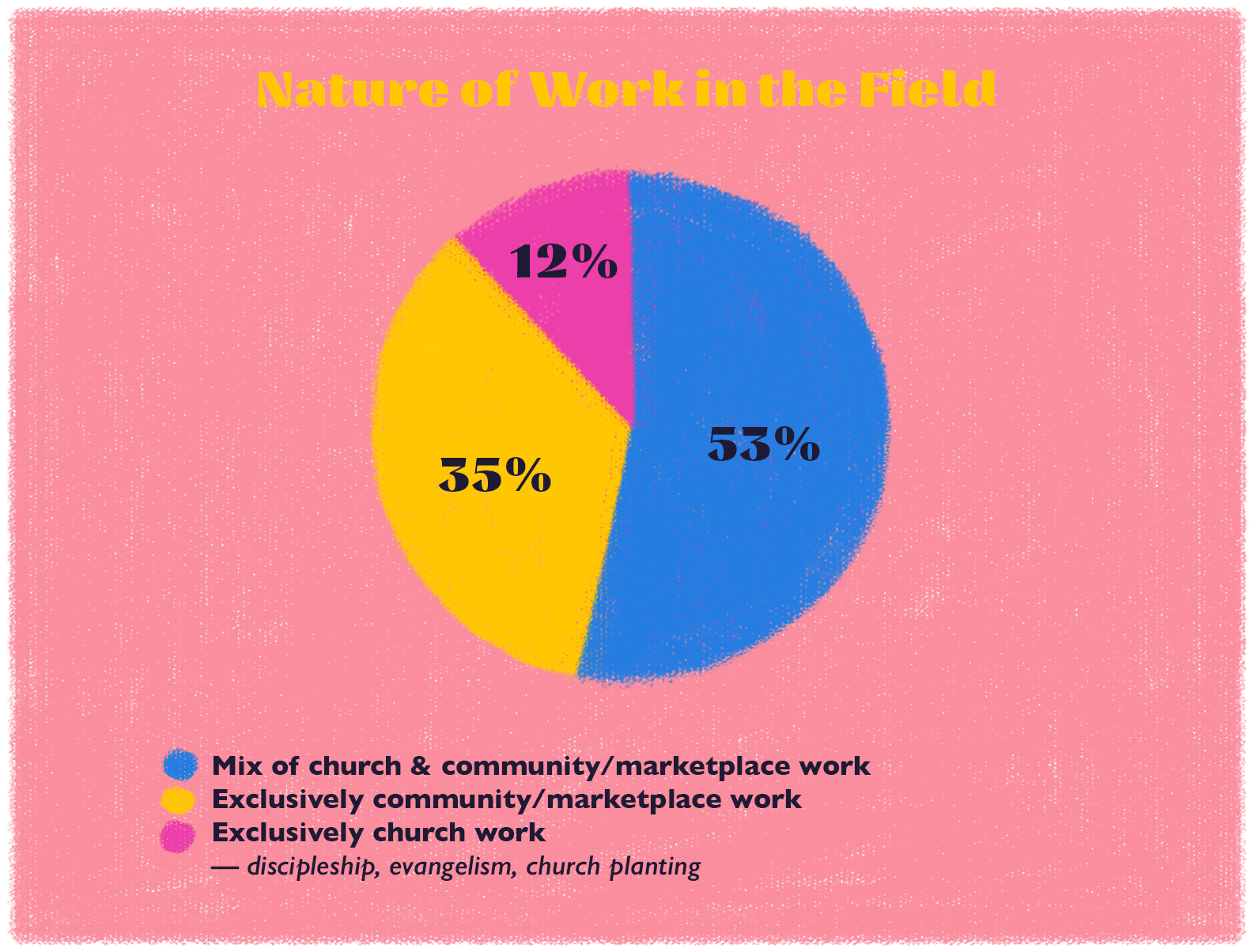
In this article, we present some of the key highlights of study, including the missionary’s journey of discerning the call to the field and the role that local churches played in that process.
1. 4 out of 10 Next Gen Missions Workers received their call as teens
Next Gen Missions Workers were asked: When did you first seriously consider that God was calling you to cross-cultural missions?
Interestingly, more than 40% of respondents were called as teenagers (up to 20 years old). However, most of them were only deployed during the age range of 26-30.
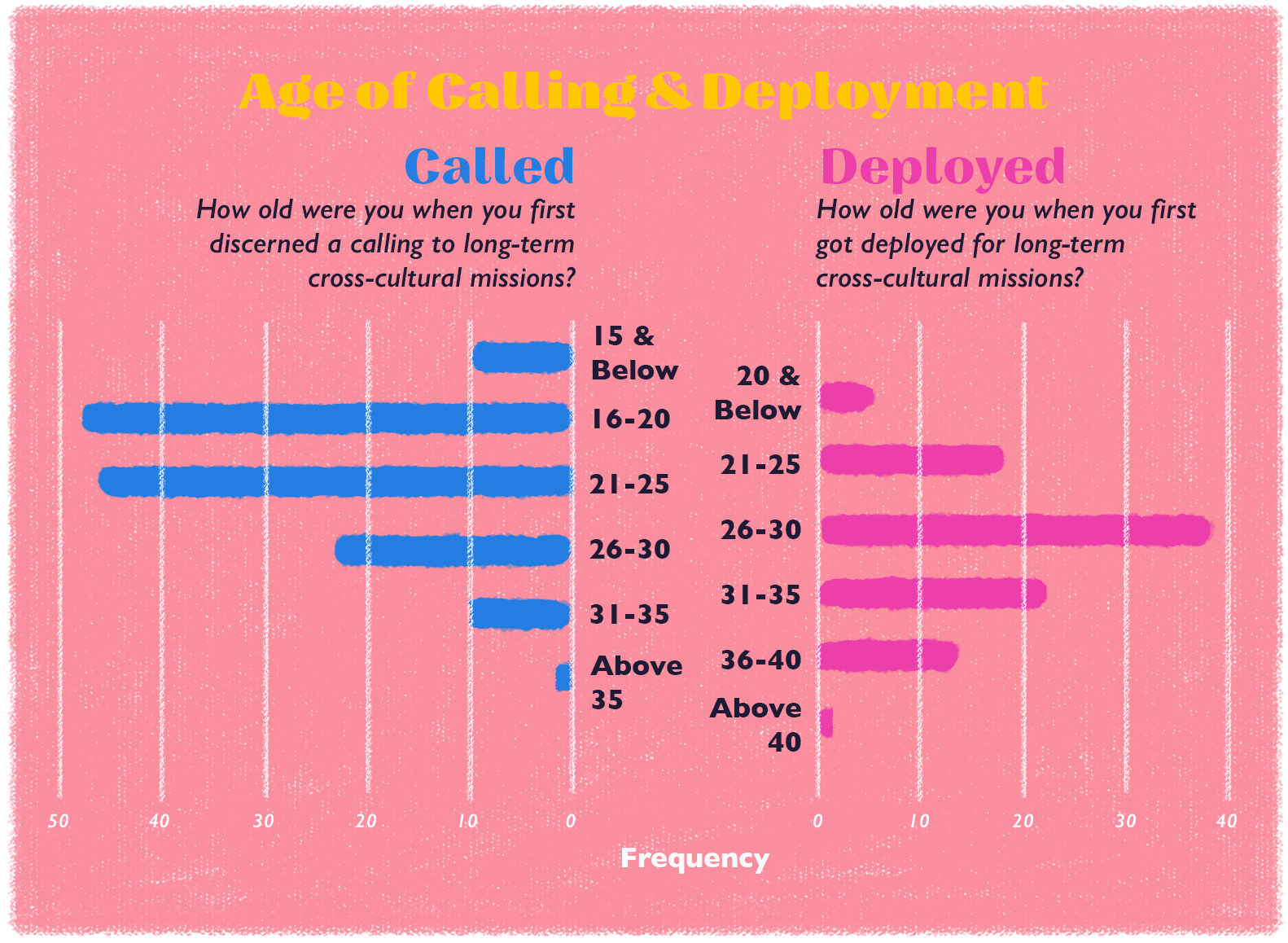
A further breakdown revealed that for those who first discerned a call between 16-20 years old, most of them took 9 years before getting deployed.
If they first discerned a call between 21-25 years old, then the timeline would be shorter around 5 years.
TL;DR: For a youth, that’s a 10-year gap between receiving the call and going out into the field, meaning the mobilisation journey can take years!
The researchers also observed: “For many Next Gen workers, everything started as a general call to be fully surrendered to the Lord – but within that call was a conscious awareness that going cross-cultural was a real possibility in God’s purpose for that person. From thence becomes a journey of clarifying.”
Keeping that in mind, how can local churches intentionally come alongside to support these individuals who are seeking to clarify their call to missions?
And for the young person trying to discern his or her calling, what have others who have gone before them found to be helpful?
2. Next Gen Missions Workers could use help in discerning their call
When the Next Gen Missions Workers were asked to rate their church on the extent they received help in discerning their call, the average was 3.95 out of a 7-point scale, with 7 being “to a great extent”.
Mission Leaders were also asked a similar question, but on the extent they believed the local church can help someone discern their calling. This time, the average rating was 5.60 out of 7.
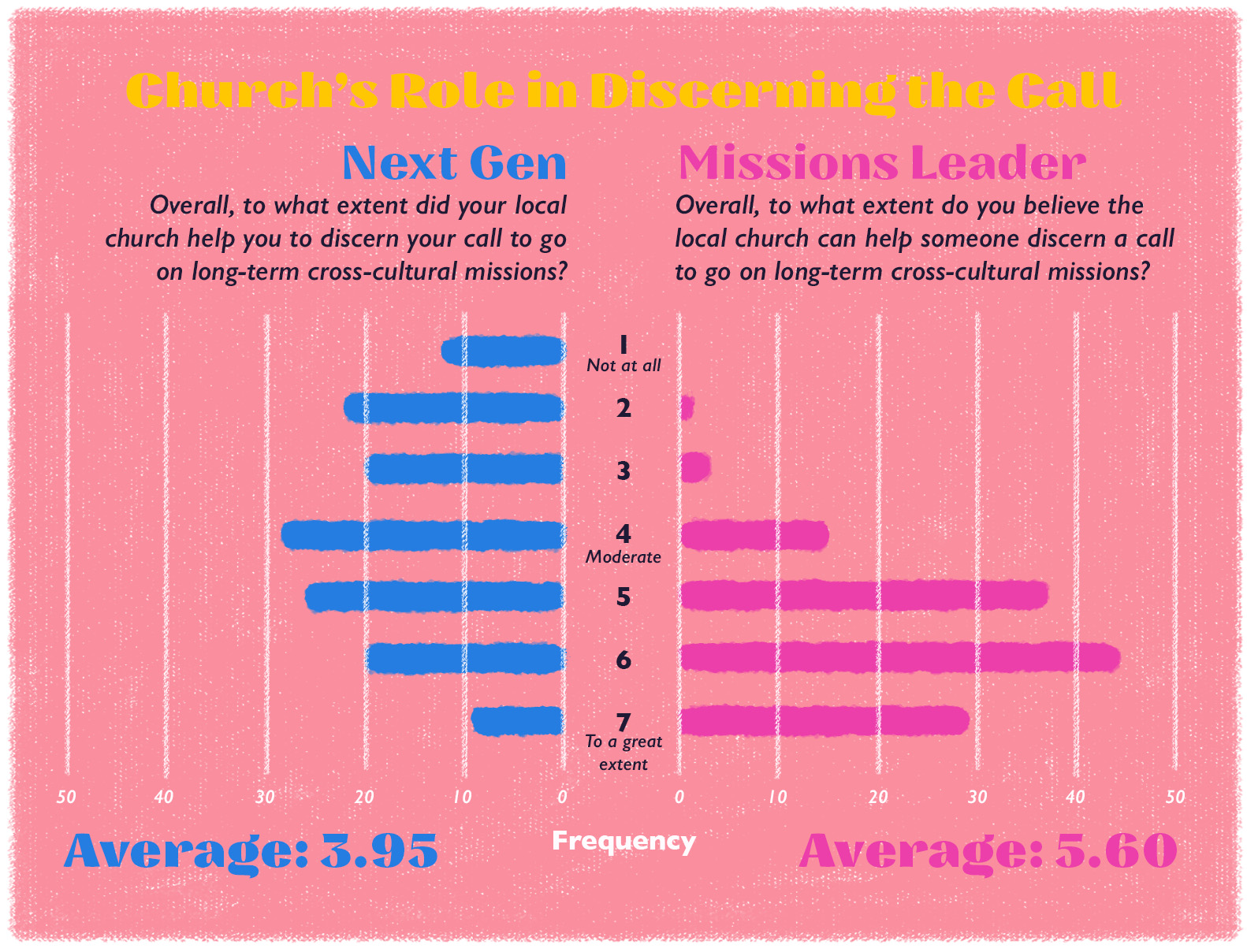 It appears that Mission Leaders believe the church can do much to help its members discern their call to missions.
It appears that Mission Leaders believe the church can do much to help its members discern their call to missions.
However, the responses from the Next Gen Missions Workers suggest that there is room for the local church to play a bigger role.
Furthermore, when Next Gen Missions Workers were asked what, or who, played a significant role in helping them to discern their calling, we see that they valued the impact their churches have on their journey.
As observed by the report’s authors, both people and platforms are ways in which “the Spirit may work to craft defining moments in the lives of individuals”.
These were the top 5 significant influences for each category.

Finally, the importance of prayer in all of this decision-making was not forgotten in this study, as several Next Gen respondents shared anecdotes on how they had turned to prayer for clarifying their call, or received a burden for mission work through prayer.
3. Next Gen Missions Workers want the support of their home church
The study also looked at the concerns of the Next Gen workers, specifically when they had already committed to go and were preparing for it.
 Those who were already deployed rated the 1st, 2nd and 4th concerns as being important for ministry effectiveness in retrospect.
Those who were already deployed rated the 1st, 2nd and 4th concerns as being important for ministry effectiveness in retrospect.
They also added on two other factors: specific mission field knowledge and supportive home church community.
In addition, Next Gen workers were asked: In retrospect, what do you think your local church could have done more in preparing you prior to deployment?
These were the top 3 responses.
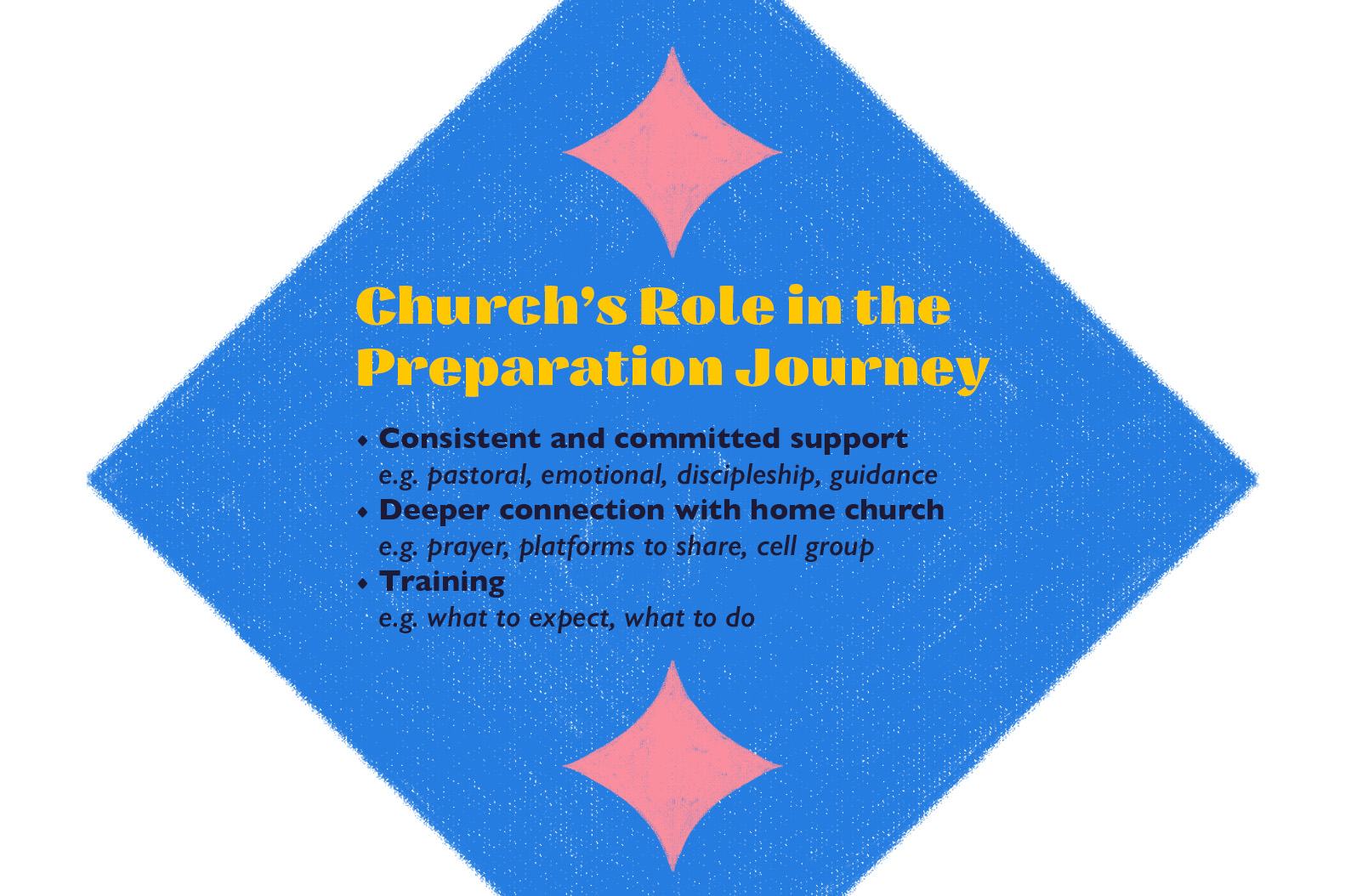
With that said, the study urged churches to start even much earlier in educating people on what missions is about, encouraging churches to go beyond equipping those who already have a calling.
4. Churches can play a bigger role in raising Next Gen Missions Workers
When local church missions leaders were asked to evaluate their own church’s efforts, they were fairly moderate in rating their church’s teaching on cross-cultural missions (4.37 out of 7).
They also gave an even lower rating when it came to encouraging their members to be personally involved in long-term cross-cultural missions (3.91 out out of 7).
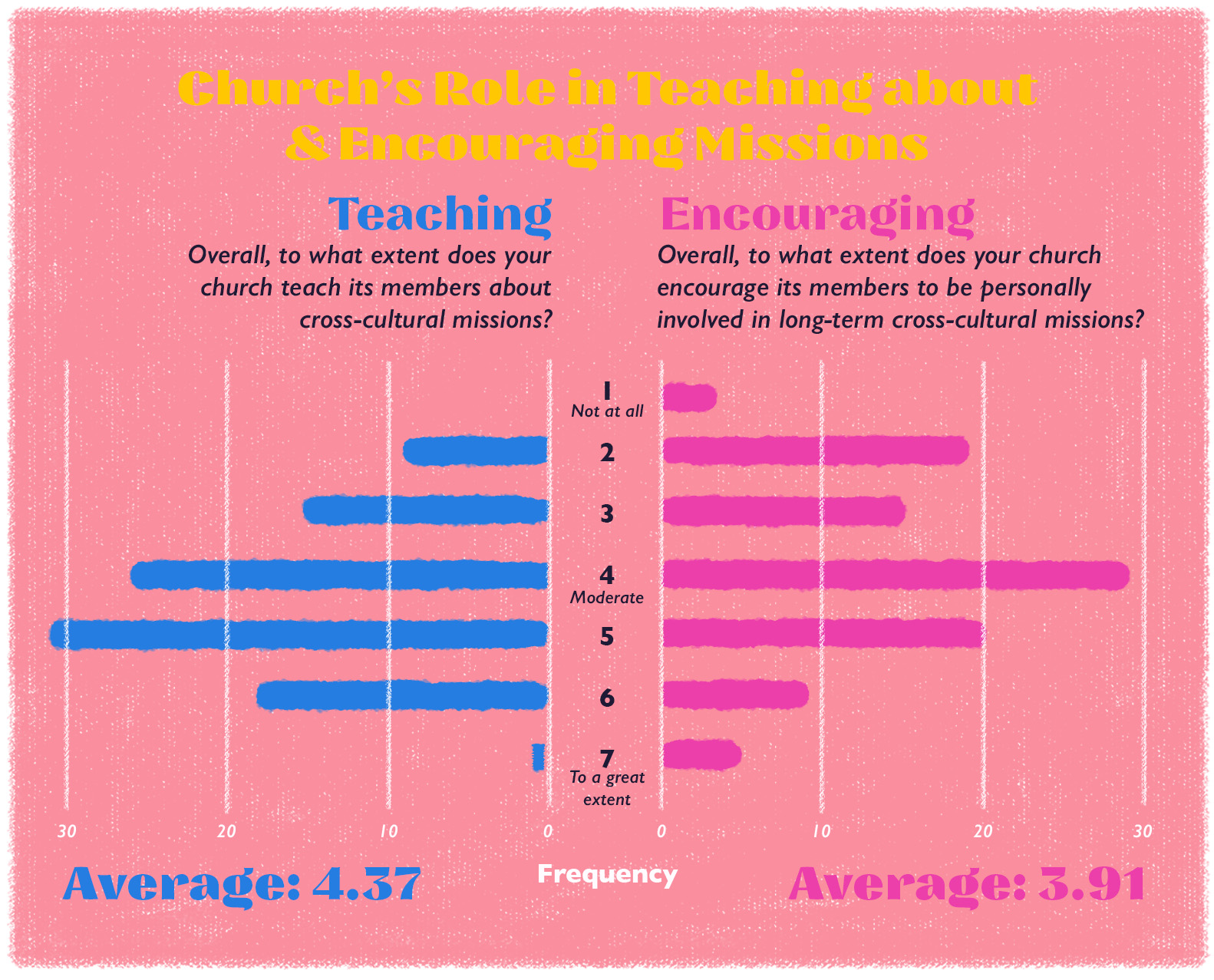
In analysing the overall findings, the report’s authors have reaffirmed their conviction that there are many ways for local churches to grow in their capacity and capability to mobilise the next generation.
Some of their suggestions include:
- starting missions teaching from youth ministry or earlier.
- establishing a missions policy that addresses concerns.
- long-term journeying alongside individuals.
- being part of a community of missions-minded churches, missions agencies, Christian NGOs to leverage resources and platforms for sending.
Finally, it’s also important to note that the responsibility of missions mobilisation does not fall under one department only, but the church as a whole.

If you’re a young person who feels that God has given you the desire for missions, what can you do then?
Consider participating in mission trips and/or Christian events that can help you discern your calling, as well as pray together with a trusted church leader, mentor or friend.
This journey is never meant to be undertaken alone, so take the initiative to seek out resources from your local church and parachurch organisations as you commit this passion to prayer.
- Have you fully surrendered your life to the Lord? What would that look like?
- How can you share Christ with the gifts, passions and opportunities God has given you?
- Has God put a burden in your heart to bring the gospel to other people groups? Would you reach out to people to journey with you?









